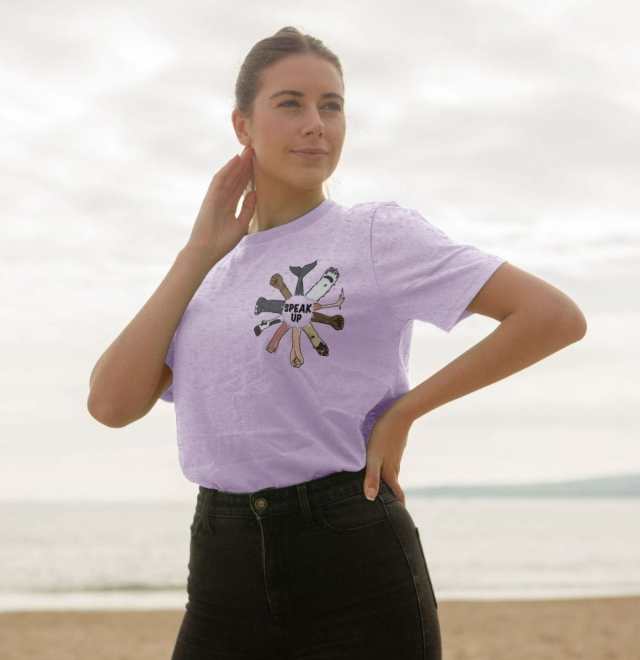Help keep One Green Planet free and independent! Together we can ensure our platform remains a hub for empowering ideas committed to fighting for a sustainable, healthy, and compassionate world. Please support us in keeping our mission strong.
The planet has witnessed a heartbreaking number of species go extinct, with many of them vanishing before humans even knew of their existence. However, the term “endling” is used to describe the last-known individual animal of a species, particularly when the creature is held in captivity. Let’s take a look at some of the most famous endlings and what led to their extinction.
One of the famous endlings is a web-toed Rabbs’ fringe-limbed treefrog named Toughie, who died in captivity in 2016 at Atlanta Botanical Garden. Fernandina Island tortoise species was presumed extinct for over a century until Fern was discovered in 2019. However, she remains the only known member of her species, making her the last of her kind. The last thylacine, also known as Tasmanian tiger, died in Hobart’s Beaumaris Zoo in 1936. Despite efforts to create a thylacine proxy species, it is not a true thylacine.
The passenger pigeon, once so numerous that their flocks would block out the sun, had their population decimated by hunting in the 19th century, and the last one, named after Martha Washington, died in the Cincinnati Zoo in 1914. Lonesome George was the last known Pinta Island tortoise, dying in 2012 after no other Pinta Island tortoises were found. Similarly, the last Pyrenean ibex, a female named Celia, was found dead in 2000, having been killed by a fallen tree. Scientists managed to clone Celia and produce a new ibex, but the animal died shortly after birth due to lung defects.
Quaggas were a subspecies of zebra endemic to South Africa and were hunted for their skin and meat. The last known wild quagga died in 1878, and in 1883, the last known quagga—a female at an Amsterdam zoo—died. Heath hens were a subspecies of prairie chickens that went extinct in the 1930s, and the male heath hen had no one to court and was last seen in 1932.
While animals are the most well-known examples of endlings, plants can also be affected. The last of the Hyophorbe amaricaulis palm tree species reside in the Curepipe Botanic Gardens in Mauritius, and it may be the next living thing from the remote island to disappear.
These endlings represent a tragic loss of biodiversity and are reminders of the importance of Conservation efforts. We must work together to protect vulnerable species and their habitats before they reach the brink of extinction. It is up to us to make changes in our daily lives that can help preserve our planet’s biodiversity for generations to come.

Speak Up Tee By Tiny Rescue: Animal Collection
Related Content:
- When Elephants Go Extinct, They Will Take the Trees With Them
- Why We Need Birds and How to Protect Them From Extinction
- Looming Mass Extinctions Could be Up There With the Dinosaurs
- The Plants Humans Don’t Need Anymore Are Going Extinct, Here’s What You Can Do
- Petition: Help Protect Canids from Becoming Extinct
Easy Ways to Help the Planet:
- Eat Less Meat: Download Food Monster, the largest plant-based Recipe app on the App Store, to help reduce your environmental footprint, save animals and get healthy. You can also buy a hard or soft copy of our favorite vegan cookbooks.
- Reduce Your Fast Fashion Footprint: Take initiative by standing up against fast fashion Pollution and supporting sustainable and circular brands like Tiny Rescue that raise awareness around important issues through recycled zero-waste clothing designed to be returned and remade over and over again.
- Support Independent Media: Being publicly funded gives us a greater chance to continue providing you with high-quality content. Please consider supporting us by donating!
- Sign a Petition: Your voice matters! Help turn petitions into victories by signing the latest list of must-sign petitions to help people, animals, and the planet.
- Stay Informed: Keep up with the latest news and important stories involving animals, the environment, sustainable living, food, health, and human interest topics by subscribing to our newsletter!
- Do What You Can: Reduce waste, plant trees, eat local, travel responsibly, reuse stuff, say no to single-use plastics, recycle, vote smart, switch to cold water laundry, divest from fossil fuels, save water, shop wisely, Donate if you can, grow your food, volunteer, conserve energy, compost, and don’t forget about the microplastics and microbeads lurking in common household and personal care products!


Comments